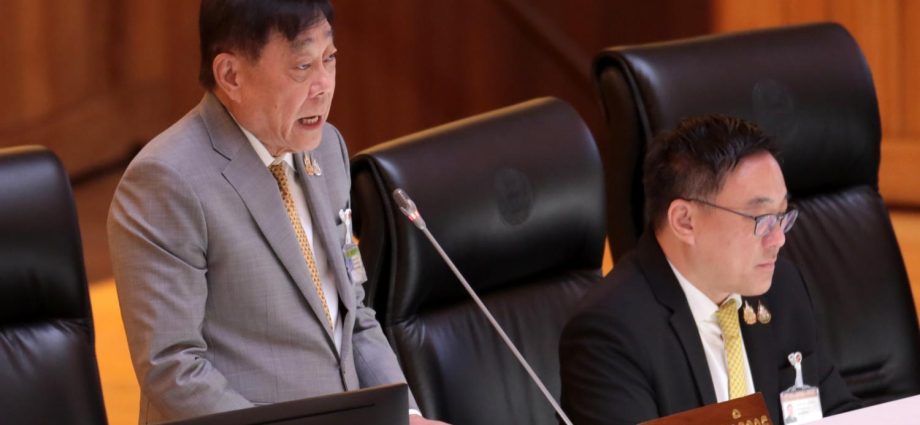MFP casts doubt on wallet growth boost

A supplementary bill which seeks to increase the budget for the current fiscal year by 122 billion baht to partially fund the government’s digital wallet handout scheme sailed through its third and final reading in the House of Representatives on Wednesday.
After five hours of debate, a total of 292 MPs voted in favour of the bill, while 161 voted against it, with one abstention. Deputy Finance Minister Julapun Amornvivat, who served as deputy chairman of the House committee vetting the bill, on Wednesday thanked the lawmakers who voted in support.
He said the bill will be a crucial tool to be used to implement the government’s measures to stimulate the economy, upgrade people’s quality of life, and create opportunities for people to pursue their careers and businesses.
“The government is ready to listen to feedback to ensure the people will be able to receive maximum benefit from the budget. Rest assured the budget will be used according to the purposes specified. The government will oversee the spending to ensure transparency,” the minister said.
The next step will be for the House to forward the bill to the Senate for deliberation, expected next week, according to a government source. Mr Julapun earlier said the handout would be issued at the end of this year as planned.
During the debate, Sittiphol Viboonthanakul, an opposition Move Forward Party list MP, said the figures provided by the Finance Ministry to the vetting committee contradict those given by the Fiscal Policy Office (FPO).
He said the Finance Ministry initially estimated on April 10 that the digital wallet project alone could contribute 1.2-1.8 percentage points to economic growth over the course of the scheme.
The ministry said this would depend on the source of the funds, the project’s conditions, the number of participants and the spending behaviour of beneficiaries. However, the FPO told the vetting panel that the digital wallet project alone could only contribute 0.9 percentage points to growth, Mr Sitthipol said.
Veera Thirapattaranont, a committee member who opposed the bill, called on the government to stop the handout scheme because the National Anti-Corruption Commission (NACC) has warned the government about a range of potential pitfalls tied to the scheme, from graft to legal risks.
Deputy Prime Minister and Finance Minister Pichai Chunhavajira said the 10,000 baht digital wallet scheme will help improve economic growth. He said the government will spend the money carefully.
Budget Bureau director Chaloempol Pensut earlier confirmed the government could spend the budget from fiscal year 2025 on its flagship 10,000-baht digital wallet handout scheme.
Mr Chaloempol was reacting to MFP concerns about fiscal year 2025 figures on how the scheme would boost growth. The MFP earlier told the government that it had failed to provide clarity on the source of funds for the scheme from fiscal year 2025. Mr Chaloempol said the government can have the 2025 budget expenditure, provided that the portion comes from cancelled projects.
He insisted on the government following the fiscal management measures announced earlier, saying they had a valid reason attached to the budget requirement as written in the recent Budgetary Transmission Act.
With the scaling down of the budget to be used in the scheme, the government said the 450 billion baht would come from the budgets for fiscal years 2024 and 2025:
160 billion baht from FY 2024 — with 122 billion baht coming from the Additional Budget Act and 40 billion baht more being trimmed from other spending.
285 billion baht from FY 2025 — with 152.7 billion baht from the annual budget and 132.3 billion from spending cuts.

